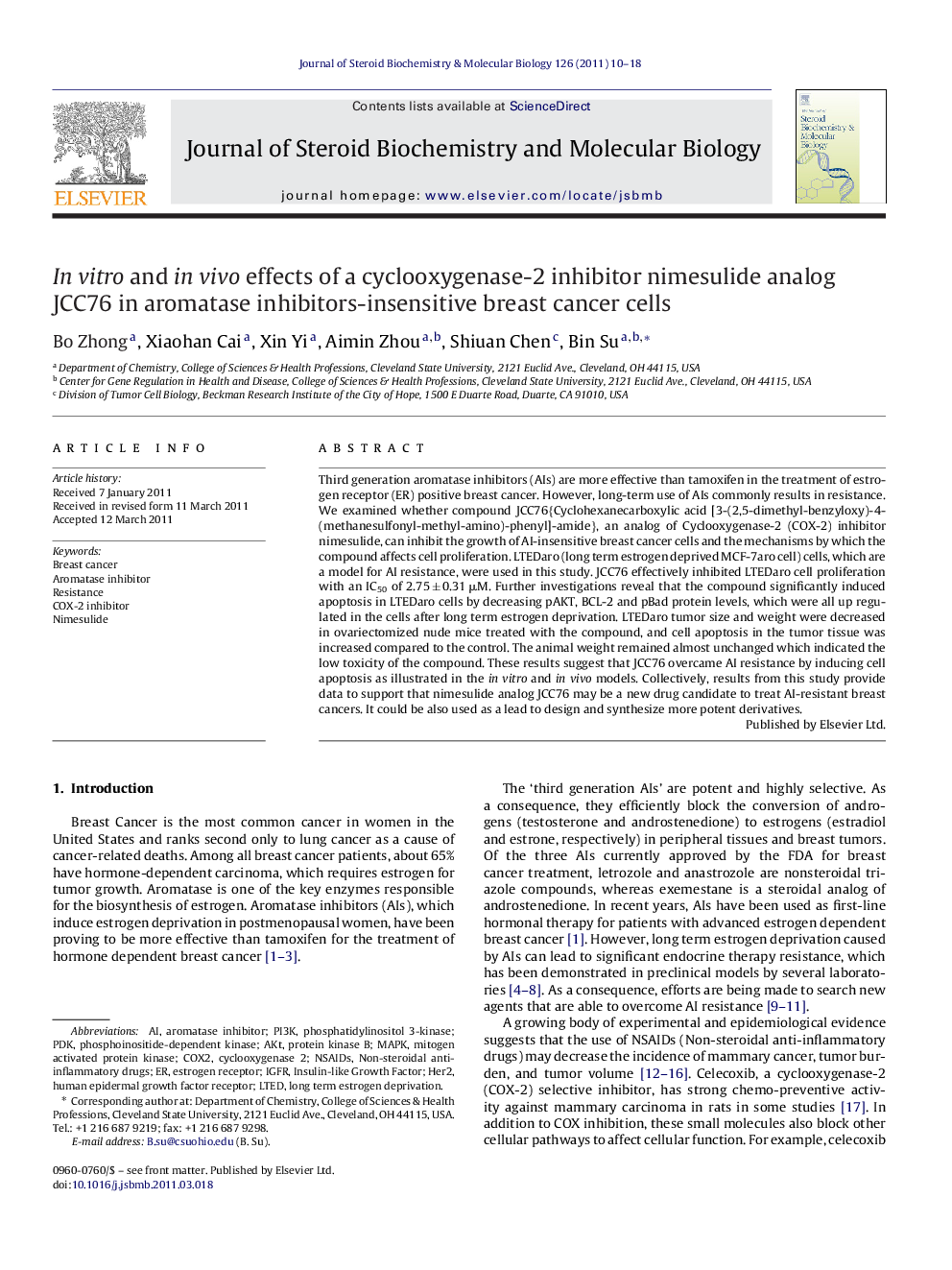| Article ID | Journal | Published Year | Pages | File Type |
|---|---|---|---|---|
| 1991882 | The Journal of Steroid Biochemistry and Molecular Biology | 2011 | 9 Pages |
Third generation aromatase inhibitors (AIs) are more effective than tamoxifen in the treatment of estrogen receptor (ER) positive breast cancer. However, long-term use of AIs commonly results in resistance. We examined whether compound JCC76{Cyclohexanecarboxylic acid [3-(2,5-dimethyl-benzyloxy)-4-(methanesulfonyl-methyl-amino)-phenyl]-amide}, an analog of Cyclooxygenase-2 (COX-2) inhibitor nimesulide, can inhibit the growth of AI-insensitive breast cancer cells and the mechanisms by which the compound affects cell proliferation. LTEDaro (long term estrogen deprived MCF-7aro cell) cells, which are a model for AI resistance, were used in this study. JCC76 effectively inhibited LTEDaro cell proliferation with an IC50 of 2.75 ± 0.31 μM. Further investigations reveal that the compound significantly induced apoptosis in LTEDaro cells by decreasing pAKT, BCL-2 and pBad protein levels, which were all up regulated in the cells after long term estrogen deprivation. LTEDaro tumor size and weight were decreased in ovariectomized nude mice treated with the compound, and cell apoptosis in the tumor tissue was increased compared to the control. The animal weight remained almost unchanged which indicated the low toxicity of the compound. These results suggest that JCC76 overcame AI resistance by inducing cell apoptosis as illustrated in the in vitro and in vivo models. Collectively, results from this study provide data to support that nimesulide analog JCC76 may be a new drug candidate to treat AI-resistant breast cancers. It could be also used as a lead to design and synthesize more potent derivatives.
► Nimesulide analog JCC 76 inhibits aromatase inhibitor resistant breast cancer cell growth. ► Further studies reveal that the compound significantly induces apoptosis in the resistant cells. ► The inhibition and apoptosis inducing activity are also observed in the in vivo studies. ► JCC76 is a promising drug candidate for aromatase inhibitor resistant breast cancer.
